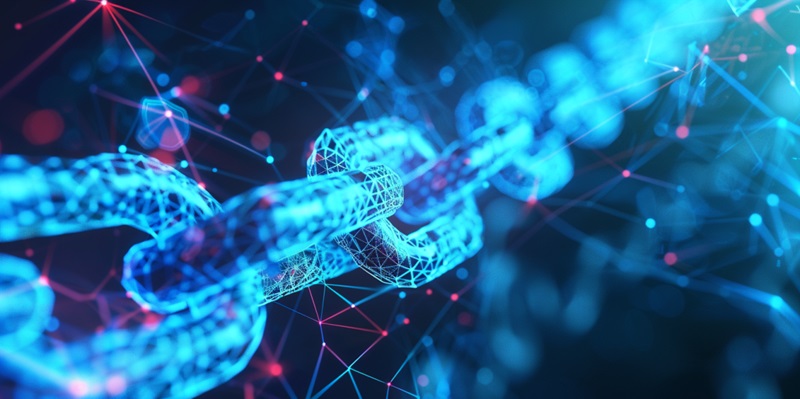The relentless march of artificial intelligence (AI) into every facet of modern life is impeded by high computational costs, hefty storage demands, and privacy concerns. Enter Swan Chain, a beacon of decentralized infrastructure hoisting the sails to navigate through these turbulent waters, promising a new era of affordable, private, and accessible AI powered by blockchain technology.
The Challenges of AI Advancement in Blockchain Environments
While AI’s potential is indisputable, it’s equally evident that the path to its full-scale deployment is strewn with financial and technical hurdles. The blockchain, despite its myriad virtues, often exacerbates these challenges with its own set of limitations. Skyrocketing costs for computational power and the immensity of storage required have kept AI’s true capabilities somewhat at bay, leaving innovators and enterprises yearning for a solution.
In blockchain ecosystems, the complexities in data privacy and the latency inherent in blockchain transactions present formidable barriers. Ensuring the security of sensitive data while facilitating fast and efficient AI processes is a puzzle many have tried to solve. Without addressing these issues, the blockchain’s promise as a haven for AI development remains unrealized, thereby necessitating a platform that can merge the two realms seamlessly and economically.
Swan Chain’s Foundational Role in AI Accessibility and Security
Breaking through barriers, Swan Chain provides a foundational platform that integrates Web3 with AI, streamlining storage, computing, bandwidth, and payment processes. This convergence enhances AI accessibility and ensures data security, which are vital for the technology’s expansion across diverse industries. Embraced by developers, this platform supports burgeoning AI applications within a decentralized ecosystem powered by OP Stack’s layer-2 technology.
Swan Chain’s infrastructure is not just a testament to innovation, but a tangible step toward mitigating the cost-prohibitive nature of AI and removing the complexities associated with blockchain. With these improvements, developers and businesses can focus on harnessing the full potential of AI, deploying solutions that can learn, adapt, and perform without the traditional boundaries set by high expenses and technical obstructs.
Testnets and Technological Exploration
Leading up to its highly anticipated mainnet launch, Swan Chain has conducted impactful testnets, including the Proxima and Saturn. These have not only demonstrated the platform’s prowess in accommodating a multitude of transactions and engagements but have also propelled the Atom Accelerator Race, incentivizing users as they eagerly await the official token generation event.
These testnets are not merely trial runs but are pivotal in establishing a robust and reliable platform that can withstand real-world applications and usage. The enthusiasm and participation of the community showcase the platform’s potential and set the stage for a full-fledged integration of AI with decentralized technologies, poised to challenge the traditional models head-on upon its mainnet launch.
Embracing Underutilized Resources and ZKPs
A standout feature of Swan Chain is its innovative use of underutilized community data center resources, driving down costs significantly. Zero-knowledge proofs further bolster the platform’s dedication to privacy, offering specialized outsourcing services for networks like Filecoin and Aleo. The Swan Chain ZKP market exemplifies its robust computational capabilities, even in its nascent phase.
Harnessing the power of underutilized resources translates into the democratization of data storage and processing power. It allows businesses of all sizes to partake in the AI revolution at a fraction of the cost while maintaining the integrity and confidentiality of their data. This approach inherently increases the scale and scope of AI applications, making it more versatile and universal.
Democratizing Access to Decentralized AI
Swan Chain isn’t just about advances in infrastructure; it’s revitalizing the landscape of AI by democratizing access to resources and sophisticated AI models. The Lagrange DAO, Multi-Chain Storage, and cutting-edge models like Stable Diffusion and MusicGen are no longer distant notions but accessible tools fostering technological empowerment across sectors.
By simplifying access to these resources and models, Swan Chain creates an environment where innovation can flourish without restriction. AI tools and services become more than just high-tech novelties—they become practical solutions embedded in everyday business processes, research methodologies, and creative endeavors.
Interoperability and Strategic Alliances
The key to Swan Chain’s potential ubiquity lies in its interoperability and strategic alliances. Decentralized resource trading markets and partnerships with pivotal players in the tech and blockchain realms extend the platform’s reach. The OP Superchain, Swan Chain’s EVM-compatible solution, exemplifies a cost-effective alternative, catering especially to resource-intensive DApps and accelerating the synergy between AI and blockchain.
Interoperability is critical for blockchain platforms; without it, the full potential of decentralized systems cannot be realized. Swan Chain recognizes this and has worked to ensure that its platform can seamlessly connect with various networks and services. This universal compatibility anchors the ecosystem where AI and blockchain not only coexist but thrive together.
Recognition and Support from the Tech World
Swan Chain has garnered recognition and support from the tech world for its innovative approach to overcoming the key constraints of artificial intelligence development. With the tech community’s backing, Swan Chain is set to redefine the paradigms of AI and blockchain integration, propelling both fields into a new era of growth and innovation.

